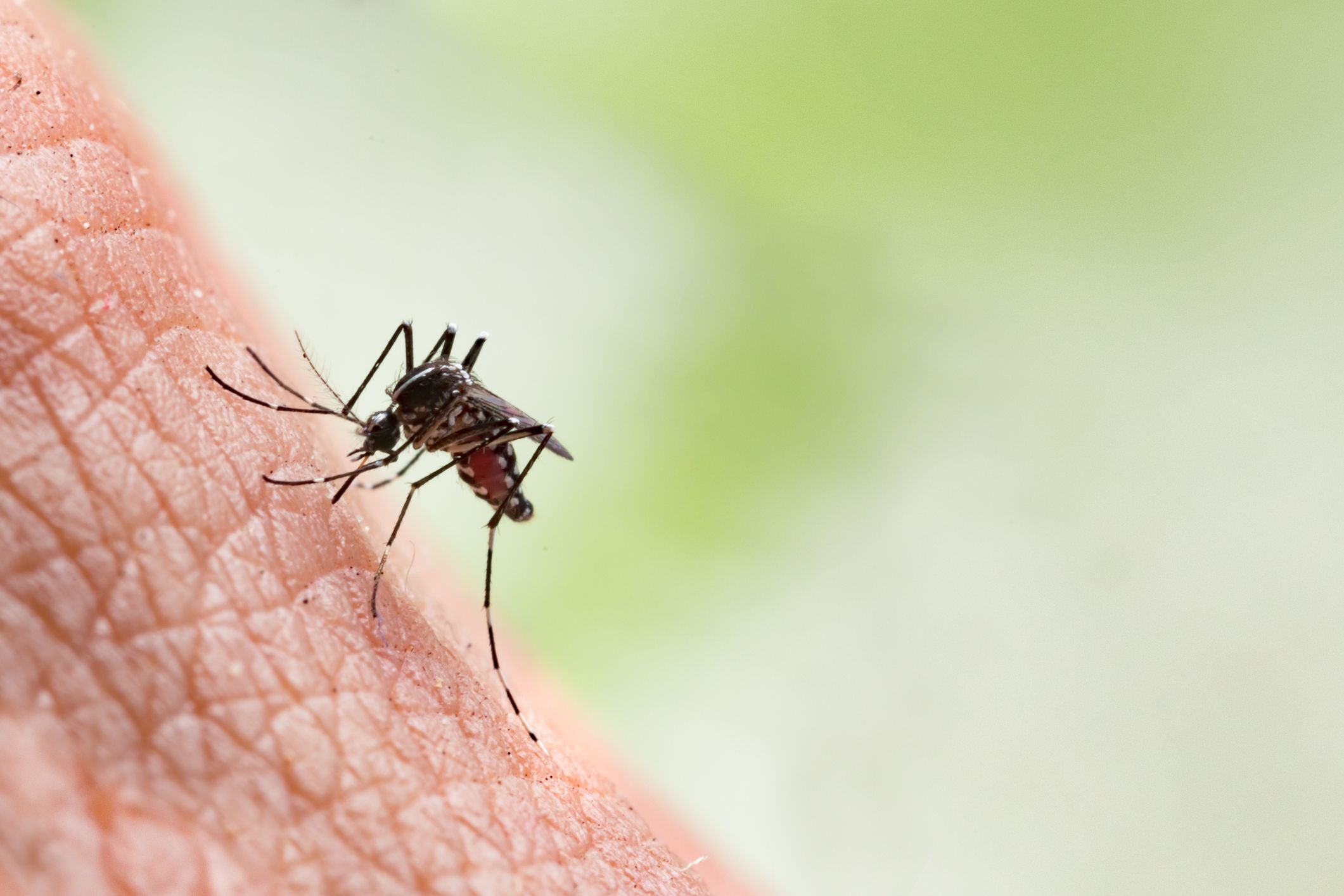Health
21 Benefits of Ganoderma Lucidum

Discover the 21 Benefits of Ganoderma Lucidum.
Ganoderma lucidum, commonly known as reishi mushroom, is a purple-brown mushroom with a long, thin stem, brown spores, and a shiny, fan-shaped cap.
The fungus grows on decaying logs and tree trunks. While Ganoderma lucidum is native to North America, Japan, and China, it is produced in several other Asian countries. Reishi mushroom has many health benefits, but talk to your doctor before taking them.
Components of the Ganoderma lucidum
This fungus is composed of alkaloids, triterpene acids, ergosterols, fumaric acid, coumarins, lactone, mannitol, and many polysaccharides.
Minerals such as potassium, calcium, phosphorus, magnesium, selenium, iron, zinc, copper, silica, sulfur, sodium, manganese, strontium, and germanium.
Terpenes, steroids, phenols, nucleotides and their derivatives and glycoproteins.
Lectin, enzymes, and long-chain fatty acids.
21 Health Benefits Of Ganoderma Lucidum
1.- Prevents Parkinson’s disease
The antioxidants in reishi mushrooms help prevent cell damage in the brain, which is one of the causes of Parkinson’s disease.
Whoever consumes the fungus regularly is very unlikely to develop this disease.
2.- Fight cancer
In 2004, studies were published discussing the effects of Ganoderma lucidum on cell growth, cell cycle, and cell death in human prostate cancer cells.
The results of the study showed that Ganoderma lucidum prevented cancer cells from multiplying in a dose- and time-dependent manner.
The reishi mushroom did this by decreasing the expression of proteins (cyclin B and Cdc2) that allow cancer cells to expand uncontrollably and by increasing the expression of a protein, p21, that suppresses cancer cell growth.
Furthermore, Ganoderma encouraged the death of prostate cancer cells.
The study concluded that Ganoderma lucidum may play a role in cancer prevention and treatment.
3.- Relieves Cancer-Related Fatigue
Ganoderma lucidum may offer relief from cancer-related fatigue, and endless tiredness related to cancer and its treatment.
Ganoderma lucidum spore powder showed promise in relieving fatigue in women with breast cancer undergoing endocrine therapy.
Endocrine therapy is a treatment that adds, blocks, or removes hormones to inhibit the growth of certain cancers, including breast cancer.
Women who received Ganoderma spores experienced an improvement in fatigue and a reduction in symptoms of anxiety and depression.
4.- Control addictions
The high content of organic germanium and antioxidants improves the function of the nervous system, thus controlling addictions.
5.- Help with constipation
Thanks to a large amount of non-soluble fiber such as hemicellulose, allows the colon to function properly.
This improves digestive functions and allows the elimination of compounds harmful to the body.
6.- Protects the bones
Due to the presence of calcium and vitamin D, in addition to other compounds that help calcium absorption, our bones are improved.
Consuming Reishi mushrooms every day helps preserve bone density.
7.- Ideal for rheumatoid arthritis
Ganoderma lucidum consumption may have a positive effect on rheumatoid arthritis, a long-term autoimmune disease that negatively affects joint health.
According to the researchers the effects of a polysaccharide peptide found in Ganoderma lucidum on cell multiplication and the production of cytokines -inflammatory proteins- in rheumatoid arthritis synovial fibroblasts.
Polysaccharide peptide from Ganoderma lucidum successfully inhibited cytokine production and cell proliferation in these fibroblasts.
8.- Reduce stress
The synergistic effects of the compounds found in the reishi mushroom allow the relaxation of the nervous system and help reduce stress and anxiety, which are becoming the main risk factors for diseases today.
9.- Protects the liver
In 2002, the polysaccharide Ganoderma lucidum was found to have great potential to act effectively to prevent liver damage.
10.- Control gastritis
The compounds that this fungus possesses allow our defenses to fight efficiently against Helicobacter Pylori.
In addition, the cells of the stomach function better thanks to the synergy of compounds controlling the secretion of acid.
11.- Reduces allergy symptoms
Reishi has analgesic, antifungal, antiviral, antiparasitic, cardiovascular, and antidiabetic effects.
Phytochemicals are powerful antioxidant compounds found in plants that are believed to prevent disease in humans.
The main active ingredients in reishi are two phytochemicals known as beta-glucan polysaccharides and triterpenes.
The phytochemicals in reishi are reported to prevent free radical-induced damage in the body, reduce allergy symptoms, treat and prevent hypertension, and stimulate the production of antibodies that support the immune system.
Reishi is also touted as an adaptogen, a substance believed to reduce the effects of mental, physical, and emotional stress.
12.- Helps cardiovascular health
Reishi supports and promotes cardiovascular health.
It lowers high cholesterol levels and improves blood flow to the heart.
Reishi also helps prevent blood clots by keeping the blood thin and preventing it from clumping together, a condition known as platelet aggregation.
13.- Combat benign prostatic hyperplasia
Ganoderma extract improves lower urinary tract symptoms in men with benign prostatic hyperplasia.
It inhibits an enzyme involved in this disorder.
BPH causes symptoms of frequent urination, nighttime urination, decreased urine flow, and incomplete emptying of the bladder.
14.- Relieves Migraine
Similarly, Ganoderma lucidum has compounds that relax the nervous system along with triterpenoids that control pain and inflammation and help control and combat migraines in the best way.
15.- Immune system stimulant
Some HIV/AIDS or cancer patients use Ganoderma extract to stimulate the immune system, as noted by the MSKCC.
This extract can stimulate the production of various types of white blood cells that help prevent and fight infection, and people with HIV or undergoing chemotherapy are more susceptible to infectious diseases.
Ganoderma also increases antioxidant activity in plasma, beneficial because antioxidants scavenge free radicals that can cause cell damage.
In addition, Ganoderma has antitumor properties.
16.- Endocarditis
Ganoderma extract can help strengthen the body and provide blood pressure support for people with endocarditis, an inflammation of the inner lining of the heart and heart valves.
17.- Protects the skin
The antioxidants in reishi mushrooms protect the skin from the damaging effects of free radicals, which are the cause of wrinkles and skin aging.
Reishi mushroom also helps in the fight against skin cancer.
18.- Control cholesterol
Reishi mushroom helps lower cholesterol levels.
It improves the levels of good cholesterol and bad cholesterol, reducing bad cholesterol, due to the presence of triterpenoids and adenosine.
19.- Fight asthma
The anti-inflammatory properties of triterpenoids and germanium allow the muscles that support the bronchial tubes to relax, reducing the severity of asthma.
In addition to the immunomodulatory effect of its compounds, it prevents the appearance of agitations.
20.- Helps prevent obesity
Reishi mushroom helps prevent obesity by stopping the movement of glucose into fat cells.
People who follow a balanced diet, exercise regularly, and consume reishi mushrooms reduce the possibility of obesity.
21.- Treats autoimmune diseases
Thanks to the effect of lentinan and other polysaccharides such as beta-glucans, the function of our immune system is regulated, thus fighting diseases such as psoriasis, vitiligo, lupus, arthritis, etc.
22.- Prevents Alzheimer’s
Reishi mushroom helps strengthen memory, although there is still no known cure for Alzheimer’s, the reishi mushroom helps slow down the process of reducing acetylcholine in the brain, which is what causes Alzheimer’s.
23.- Control overweight
Reishi mushroom burns fat as the person loses weight.
Naturally stimulates metabolism, due to the synergy of its compounds.
By activating our metabolism our cells begin to use more reserve energy (fat).
Additional Uses for Ganoderma Lucidum
•Delays aging
•Traditional Chinese medicine uses reishi to slow down aging.
•Build disease resistance.
•Reduce inflammation.
•Clean the blood.
•Support liver, kidney, and nerve function.
•Improve strength and endurance.
•Improve lower urinary tract function in men.
•It is also used to treat hay fever, insomnia, fatigue, viral infections, stomach ulcers, depression, and impotence.
However, these uses are based on anecdotal evidence and not solid scientific research.
Warnings of the consumption of the Ganoderma lucidum
Reishi mushrooms may have side effects with prolonged use, according to Breast Cancer.
The organization notes that after using the mushrooms for six months, you may experience itchy skin, blood in your stool, and an upset stomach.
The US Food and Drug Administration does not require dietary supplement manufacturers to test their products before selling.
Health
15 good reasons to drink lemon juice in the morning on an empty stomach

Discover the 15 good reasons to drink lemon juice in the morning on an empty stomach.
Lemon is one of the most frequently and widely used citrus fruits.
Its popularity is due to its scent and refreshing taste.
Its aroma makes it an ingredient of choice in many recipes and the composition of perfumes.
It also accompanies a large number of drinks, including tea and cocktails, it can also be served as fruit juice.
Not only is lemon used for its aromatic qualities, but also its therapeutic dimension.
Rich in vitamin C, lemon indeed has formidable therapeutic virtues: its Antiviral and antibacterial properties as well as its ability to stimulate the immune system are widely recognized.
One of the most common ways to reap the benefits of lemon is by squeezing the juice.
Lemon juice stimulates digestion and has a detoxifying action.
It also promotes drainage of the liver and thus improves digestion.
By its ability to boost metabolism, lemon juice is an effective way to lose weight.
If you want to lose weight, drinking lemon juice in lukewarm water every morning on an empty stomach gives fabulous results.
But that’s not all, nutrition specialists at the Edison Institute of Nutrition have compiled a list of the main benefits of consuming lemon juice mixed with lukewarm water on an empty stomach:
1. An excellent source of vitamin C, lemon juice protects the body by strengthening the immune system.
2. Drinking lemon juice in lukewarm water every morning on an empty stomach helps maintain pH balance in the body.
3. Thanks to its antibacterial properties, lemon juice helps fight infections.
4. Has a detoxifying action.
5. Promotes digestion.
6. Besides vitamin C, lemon is also an excellent source of potassium, calcium, phosphorus, magnesium, etc.
7. Helps fight colds.
8. Lemon water is a well-known remedy for dealing with different skin problems like acne, rashes, wrinkles, or dark spots.
9. Mixed with lukewarm water, lemon juice stimulates digestion, boosts metabolism, and thus allows you to lose weight quickly.
10 Lemon juice is also very effective in removing toxins that have accumulated in the liver.
11. The anti-inflammatory properties of lemon help fight infections of the respiratory tract, sore throat, and inflammation of the tonsils.
12. Rich in electrolytes, lemon juice effectively hydrates the body.
13. Drinking lemon juice mixed with lukewarm water decreases muscle and joint pain.
14. Lemon juice in lukewarm water promotes good dental hygiene because it helps decrease dental pain and prevent gingivitis.
15. Drinking lemon juice in lukewarm water stimulates digestion and regulates intestinal transit.
SOME QUESTIONS / ANSWERS AND COMMENTS :
Q. Out of curiosity… my cousin is allergic to lemon. Does lime have the same virtues?
A. Yes, you can substitute lemon for lime.
I had to stop drinking lemon water for a month because I was sick. The joint pain I got rid of before all came back.
So I started drinking lemon juice in lukewarm water again every morning on an empty stomach.
Now after a week, and it’s true, my pain in my knees is gone !!!!
It’s amazing! Lemon is indeed very alkalizing and promotes the elimination of acids.
Also, it contains a lot of vitamin C, which is good for the joints.
Some people suffer from vitamin C deficiency and need to be sure to find it in their diet or supplements.
Q. After drinking lemon juice in lukewarm water in the morning on an empty stomach, how long should I wait to eat?
A. I recommend that you wait 20 to 30 minutes before eating.
Q. Why does lemon juice need to be mixed with lukewarm water? Is lemon juice also beneficial in cold water?
A. Lukewarm water stimulates digestion and the liver.
Coldwater does the opposite, it blocks digestion.
So it is best to consume lemon juice in lukewarm water.
Q. How many lemons should you squeeze in the morning to benefit from the benefits of this fruit?
A. I suggest squeezing half a lemon in a large glass of lukewarm water (25cl).
Lemon juice is rich in vitamin C and antioxidants.
Citric acid and vitamin C promote the dissolution of gallstones, their elimination, as well as the clearing of the bile ducts.
Lemon juice has been used for centuries in the treatment of kidney stones and gallstones.
Lemon also has antimicrobial properties that help reduce gallbladder infections and relieve pain.
The pectin in lemon juice relieves bloating, nausea and pain.
Besides, lemon juice helps reduce the production of cholesterol by the liver.
Q. Hello. I have a question: I have thyroid problems, can I drink lemon juice in lukewarm water?
A. Yes. You can drink lemon juice in lukewarm water if you are suffering from thyroid problems.
Q. I take medicine on an empty stomach every morning for a thyroid problem. Should I take this medicine before drinking lemon water or after?
A. Since lemon water is absorbed relatively quickly by the body, I recommend that you take your medicine soon after drinking the lemon water.
Joint pain is associated with poor digestion and allergic reactions to certain foods.
Lemon water promotes digestion and the elimination of toxins.
If your teeth are prone to demineralization and are very sensitive, I advise you to drink lemon water through a straw.
Health
Mosquito bite: The Miracle Cure Against It

Discover The Miracle Cure Against Mosquito Bite.
Have you been bitten by a mosquito again?
They have the gift of stinging us when we spend a quiet evening on the terrace!
And then, hello the itching!
We only want one thing, and that is to scratch ourselves to the point of blood. It’s super annoying!
Fortunately, my grandmother gave me her natural remedy to quickly relieve a mosquito bite.
The miracle trick is to apply a paste of baking soda and witch hazel water. Look :
What you need
- baking soda
- witch hazel water
- cup
How to do
- Put three teaspoons of baking soda in a cup.
- Pour a teaspoon of witch hazel water
- Mix to obtain a paste.
- Apply the paste to the bite.
- Leave on.
Results
And there you have it, thanks to this remedy, you have stopped the itching of mosquito bites in their tracks 🙂
Easy, fast, and efficient, isn’t it?
It is a simple treatment that makes the sting deflate and disappear quickly!
This remedy is completely natural and very gentle. It is ideal for the fragile skin of children and babies.
And you don’t even need Apaisyl cream … it’s much more economical that way.
In addition, it works for all insect bites: mosquitoes, spiders, horseflies…
Why does it work?
Baking soda soothes the itchiness. It acts as an antiseptic and disinfectant. It thus calms the inflammation caused by the sting.
Witch hazel water also disinfects the sting and soothes the itchy sensation.
It also refreshes the skin and heals the irritated part thus bringing an immediate feeling of well-being.
We also find witch hazel in the composition of calming gels after insect bites from Hansaplast.
What is witch hazel?
Witch hazel is a plant native to North America.
Witch hazel water comes from the indirect distillation of dried witch hazel leaves. It takes about 60 kilos of leaves to get a thousand liters of water.
The many benefits of witch hazel have been recognized for a very long time.
It helps disinfect wounds. Applied in massage, it is an effective venous tonic and stimulates blood circulation.
It also has anti-inflammatory properties and as such, it relieves rheumatic and arthritis pain.
It is also an asset in your beauty kit. Used in rinsing water, it eliminates dandruff.
Finally, it is also found in perfumery, because its smell is very pleasant. It is similar to that of cut grass with a hint of mint in addition.
Health
17 Benefits of Garden Cress You Never Dreamed of

Table of Contents
-

 Food5 months ago
Food5 months ago10 + Benefits of carrot juice and side effects
-

 Food5 months ago
Food5 months ago8 shocking benefits of leek juice and side effects
-

 Health5 months ago
Health5 months agoBenefits of guava leaves Sensually
-

 Health5 months ago
Health5 months ago10 shocking health benefits of Canary seed milk
-

 Health5 months ago
Health5 months ago7 health benefits of cashew leaves and side effects
-

 Health5 months ago
Health5 months ago13 shocking health benefits of Thai eggplant
-
Weight Loss5 months ago
Chrissy Metz Weight Loss Secret (2022)
-

 Weight Loss5 months ago
Weight Loss5 months agoKelly Osbourne weight loss 2022












